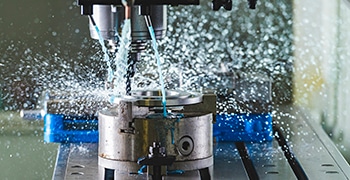 Millwrights are highly skilled craftspeople who install and assemble industrial equipment and machinery. They also have the knowledge required to operate, dismantle, repair, and maintain the machines. According to the experts in placement agencies, you can find millwright jobs in many industries, including automotive, manufacturing, refinery, energy, transportation and more. Read on to learn more about establishing a millwright career.
Millwrights are highly skilled craftspeople who install and assemble industrial equipment and machinery. They also have the knowledge required to operate, dismantle, repair, and maintain the machines. According to the experts in placement agencies, you can find millwright jobs in many industries, including automotive, manufacturing, refinery, energy, transportation and more. Read on to learn more about establishing a millwright career.
Millwright Job Responsibilities
The primary function of a millwright is to install and maintain heavy machinery. They are responsible for the following:
- Unloading, examining, and moving the machinery into position as soon as it arrives at the job site.
- Determining the tools such as cables and pulleys that may be required to place the equipment accurately.
- Using rigging and hoisting devices to position the machines.
- Preparing the foundation for a new machine or overseeing its construction.
- Reading blueprints and interpreting diagrams to make the required electrical connections.
- Moving and reassembling equipment to alter existing processes or to start a new one.
- Performing machinery repairs to enhance production and improve efficiency.
Starting Your Career as a Millwright
It helps to have excellent communication and thinking skills to land a millwright job. In addition to this, consider taking classes in mechanical drawing, CAD, mathematics, and industrial arts. You could also enroll in an industrial shop to gain practical experience.
Apprenticeship Program for Millwrights
Millwright recruiters often look for candidates who have completed an apprenticeship program. This is the usual entry method and can help you get a head start on establishing a successful millwright career. The length of the course is four years and involves the following:
- Working with an established employer
- Attending classroom lessons
- Learning the technical and theoretical aspects of the trade
- Scoring 70% or more in the final examination to obtain a Certificate of Qualification
Millwright Job Expectations
Work Hours
A millwright job involves physical work, which is why you will be given proper training so you can learn the tricks of the trade. The job normally requires working 8-hour shifts, 40 hours a week with the exceptions of travelling long distances or machinery breakdown.
Salary
A millwright is usually paid by the hour, and the payment may include medical and retirement benefits. The wages increase as you gain more expertise and experience.
Millwright Career Advancement
With the proper training and seniority, you can acquire the required skills and move to supervisory jobs in your company. This could help increase your income significantly. You could also work as an instructor for apprentices. Another option is to become a self-employed contractor.
Work Environment for a Millwright
The work conditions for this trade depends on the industry and the employer’s requirements. It may vary from indoors to outdoors and working in one location to travelling to different places.
Find a Good Millwright Job with The Assistance of Our Experts
 Winters Technical Staffing is a leading placement agency in Toronto. We have the experience, resources, and knowledge to help you with your job search. Our expert consultants work towards understanding your needs and help you find the right fit with a great organization.
Winters Technical Staffing is a leading placement agency in Toronto. We have the experience, resources, and knowledge to help you with your job search. Our expert consultants work towards understanding your needs and help you find the right fit with a great organization.
For more information about millwright jobs, feel free to call us at 647-556-2408. You could also fill out our online form if you have any questions.
For better knowledge, read through our following related posts:


